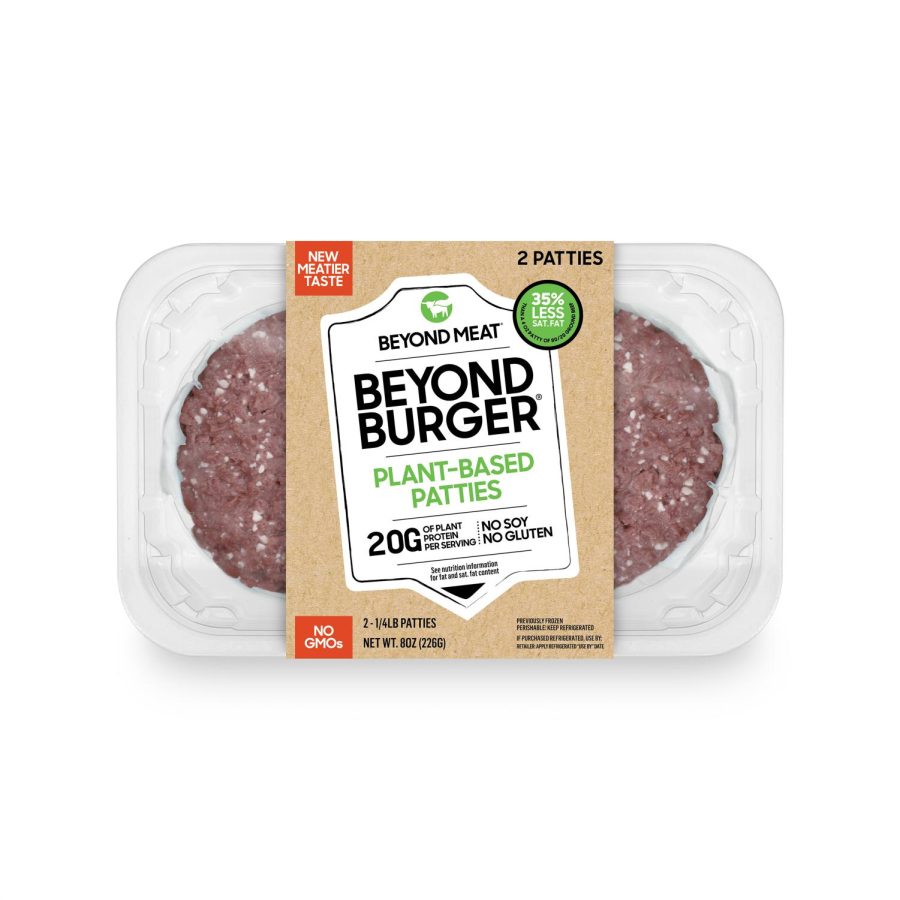`Vegan meat?’ No thanks.
Vegetarianism no longer means “to abstain from meat”
Beyond Meat
Plant-based options provided by companies like Beyond Meat conflict with core values of veganism
On May 2, 2019, Beyond Meat, a plant-based food company, went public with their meat-free burgers and sausages. “Eat what you love,” they said. What a fun tagline, hope-inducing and thrilling. Yet I can’t help but scoff at it.
I am a vegetarian, and have been since birth. I have spent so much time struggling with living a meat-free lifestyle. When I was in 7th grade, my orchestra group went to McDonald’s for lunch one afternoon. My classmates cheered and shouted words like “Happy Meal,” and “Big Mac.” I’d never heard of these words or restaurants since my parents had never taken me to any of them. I understood why when I took a glimpse at the McDonald’s menu.
Fast forward four years later, and now vegetarianism is the new trend. The New York Times said a quarter of Americans between ages 25 and 34 are vegetarians, so meatless products from companies like Beyond Meat have become increasingly popular. This is not my vegetarianism.
This trend has created two types of vegetarianism for me: artificial vegetarianism and authentic vegetarianism. In artificial vegetarianism, people want to be vegetarians, but they also want to eat meat. Thus, they rely on vegan meat to satiate their cravings. Vegan meat gives them the loophole of eating something that looks and tastes like meat. To me, this is cheating.
On the other hand, in authentic vegetarianism, a core value is to completely abstain from meat; not just in the literal sense, but to mentally remove any feelings of temptation for meat. Vegan meat holds no appeal for intrinsic vegetarians because they have no unsatisfied craving for meat.
Born into an Indian Brahmin family, I am an authentic vegetarian. In my religion, animals are seen as the pets of the Gods. The temptation to eat these sacred beings is unholy. Although vegan meat technically doesn’t include any animal parts, it replicates how animals look when cooked or skewered. If I were to indulge in vegan meat, I would violate my religion as a meat eater.
I’m not alone in this feeling. In the Wall Street Journal, in 2021 the world’s largest kosher certification group OU Kosher’s board voted against Impossible Foods’ kosher-certification request for Impossible Pork. Rabbi Menachem Genack, the CEO, claimed the word “pork” was hard to stomach.
Artificial vegetarians have created a seemingly simple way of being both a vegetarian and a meat-eater; you can just eat meat that doesn’t come from an animal. But this isn’t vegetarianism anymore. People don’t stop eating meat, they just stop eating a certain kind of meat. “Eat what you love,” it seems too good to be true. In my case, that’s because it is.







































